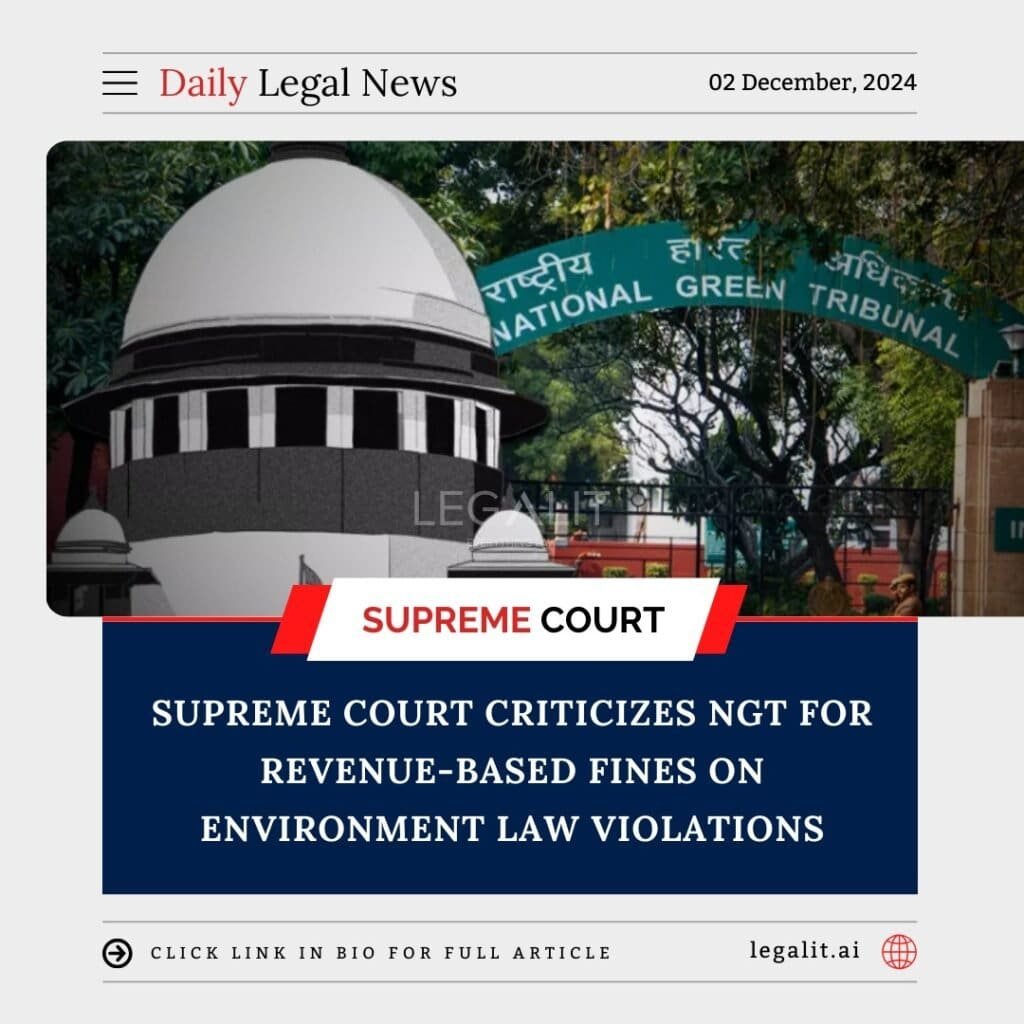
The Supreme Court has expressed strong disapproval of the National Green Tribunal’s (NGT) practice of imposing fines on companies for environmental law violations based on their revenue. The court emphasized that penalties should be proportionate to the harm caused and not arbitrarily linked to financial metrics.
Background:
The case arose from an appeal by a company challenging a substantial fine imposed by the NGT. The tribunal had calculated the fine as a percentage of the company’s revenue, arguing it would act as a deterrent.
Court’s Observations:
The Supreme Court stated that penalties must reflect the actual environmental damage and serve justice, not merely penalize companies for their financial success. It underscored that revenue-based fines lack a legal basis and risk being perceived as punitive rather than corrective.
Legal Standards for Fines:
The court highlighted the importance of adhering to established legal principles while determining penalties for environmental violations. Fines should be rooted in evidence of damage, the nature of the violation, and its impact on society and the environment.
Implications:
This ruling is expected to influence how environmental regulatory bodies assess and impose penalties, steering away from arbitrary financial calculations. It also sets a precedent for fairer enforcement of environmental laws.
Conclusion:
The Supreme Court’s stance reinforces the need for proportionality and legality in environmental law enforcement. Regulatory bodies must focus on the extent of environmental harm and corrective measures rather than a company’s financial stature.